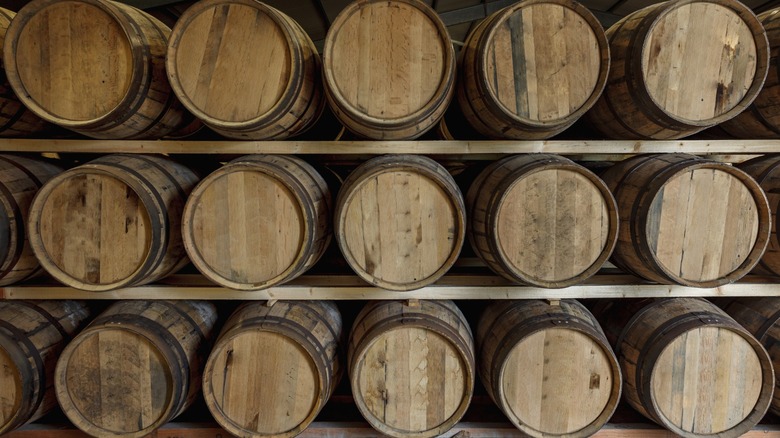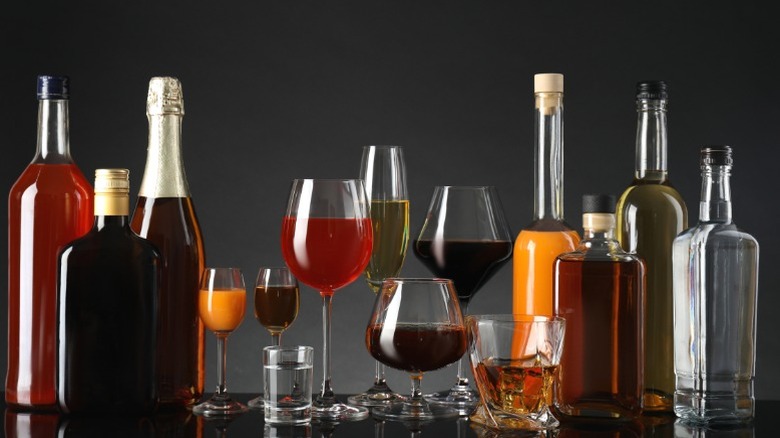Will The Bourbon Barrel-Aged Fad Ever Flicker Out?
When it comes to modern food trends, there's nothing people love more than when one kind of food or drink is mashed up with another. Just look at the "cronut" fad, a mix between a croissant and a donut that was inescapable for a few years, for proof. And in the world of wine, we have bourbon barrel-aged products to contend with, too. But are they really any good? And if they aren't, how much longer will we have to deal with them? We asked Chris Blatner, Executive Bourbon Steward and founder of Urban Bourbonist, for the lowdown. In short, it has its uses, but it shouldn't be used for everything.
First of all, what is bourbon barrel-aged wine, and what makes it so different from regular wine? Blatner explains that "'bourbon barrel-aged' is a straightforward term, meaning the product (wine, beer, coffee, etc.) has spent time resting in barrels that previously held bourbon. Often made in Kentucky, bourbon has to meet a number of criteria in order to qualify for its distinction, rather than just plain whiskey, one of which is that it must be aged in a new oak barrel. That's part of the reason why bourbon barrel-aged products, including wine, have become so common. "Bourbon can only be aged in new oak barrels, so distilleries sell the used one[s], creating a huge global supply," Blatner says. "Common flavor carryovers from the barrel are vanilla, toasted oak, caramel, coconut, chocolate, and baking spices."
Bourbon barrel-aged flavors can be overwhelming
So why do wine lovers turn their noses up at bourbon barrel-aged products? What's wrong with adding notes of vanilla and toasted oak? We thought sommeliers loved that sort of thing. Blatner may be a bourbon specialist, but he can hazard a guess as to why. "I'm not a wine expert, but I think wine purists often critique bourbon barrel-aged wine because it blurs terroir and traditional winemaking. The bold whiskey flavors can flatten nuance, especially in subtle varietals." The terroir refers to the complete environment in which a wine was produced — the climate, the soil's salinity, the use of grape stompers, and so on; bourbon barrel-aged wines can overwhelm that delicate flavor.
While Blatner believes bourbon barrel-aging has uses in other settings, he's skeptical that it will stick around when it comes to wine. "Bourbon barrels add legit richness to stouts, porters, BBQ sauces, and even maple syrup. But when it's slapped on a product just to move inventory, that's where it loses credibility. I think it'll stick around in categories where it actually improves the product (beer, sauces), but in things like wine, I'm not so sure."

